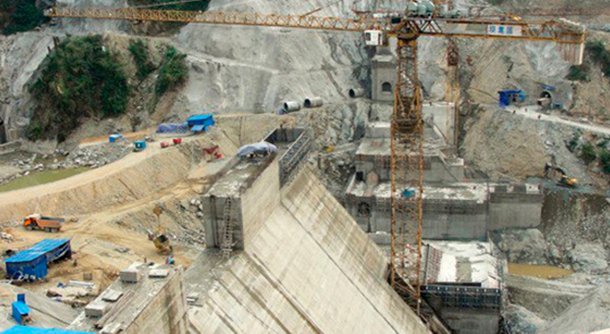RANGOON — A Chinese firm that signed deals with Burma’s former military rulers to build hydro dams said it could renegotiate the terms, which would see some projects supplying 90 percent of power to China, in order to allow more power for domestic consumption.
Burma’s unreliable power supply is undermining economic development in Asia’s second-poorest country, which is emerging from 49 years of autocratic mismanagement under military rule.
There has also been increased sensitivity in Burma about whether it has been selling off too big a share of its rich resources to neighboring countries, particularly China.
“If the new government thinks there is more power demand now in Myanmar, then of course there is no problem to meet the local demand first,” Sun Hongshui, vice president of the Power Construction Corp of China, told Reuters.
Despite having abundant natural gas and hydropower potential, only around a quarter of Burma’s 60 million people have access to electricity, among the lowest rates in Asia, according to an October 2012 Asian Development Bank report.
Burma’s semi-civilian government has promised to supply electricity to the entire country by 2030.
Sun said his company was willing to renegotiate agreements in order to help the government achieve that objective.
“If there is extra electricity, maybe it can be exported to China or another neighboring country,” he said on the sidelines of an energy conference last week in Yangon, the commercial capital.
The Ministry of Electric Power declined to comment.
Energy Mix
Burma’s economy should grow 8.5 percent this fiscal year, higher than previously forecast mainly due to rising gas output and investment, the International Monetary Fund has said.
“Without a reliable, growing supply of electric power, the manufacturing industry especially probably wouldn’t be attracted to this country and that would hamper economic growth,” said Kyosuke Inada, senior representative in Burma for the Japanese International Cooperation Agency (JICA).
“And economic growth and political reform are closely related.” JICA is working with the government on increasing power supplies.
Total generation of electric power during the last fiscal year was 13.048 billion kwh, up from 10.964 billion kwh in the 2012-13 fiscal year and 8.625 billion kwh in 2011-2012, according to the state-run Central Statistical Organization (CSO).
Burma’s electrification plan would see a multi-prong approach involving hydro, gas, coal, and renewable. “We will discuss with the government to find best mix,” said Inada.
Private consultant Thoung Win, who sits on the government’s energy development committee, said that by 2030, Burma may generate about 30 percent of its power from gas and coal fired plants, 30 percent from renewable sources like wind and solar, and 40 percent from hydro.
But Burma will have to balance environmental and social costs in pursuing power projects.
In 2011, President Thein Sein abandoned plans for a $3.6 billion, Chinese-led dam project on the Irrawaddy River after pro-democracy and environmental protests.

















